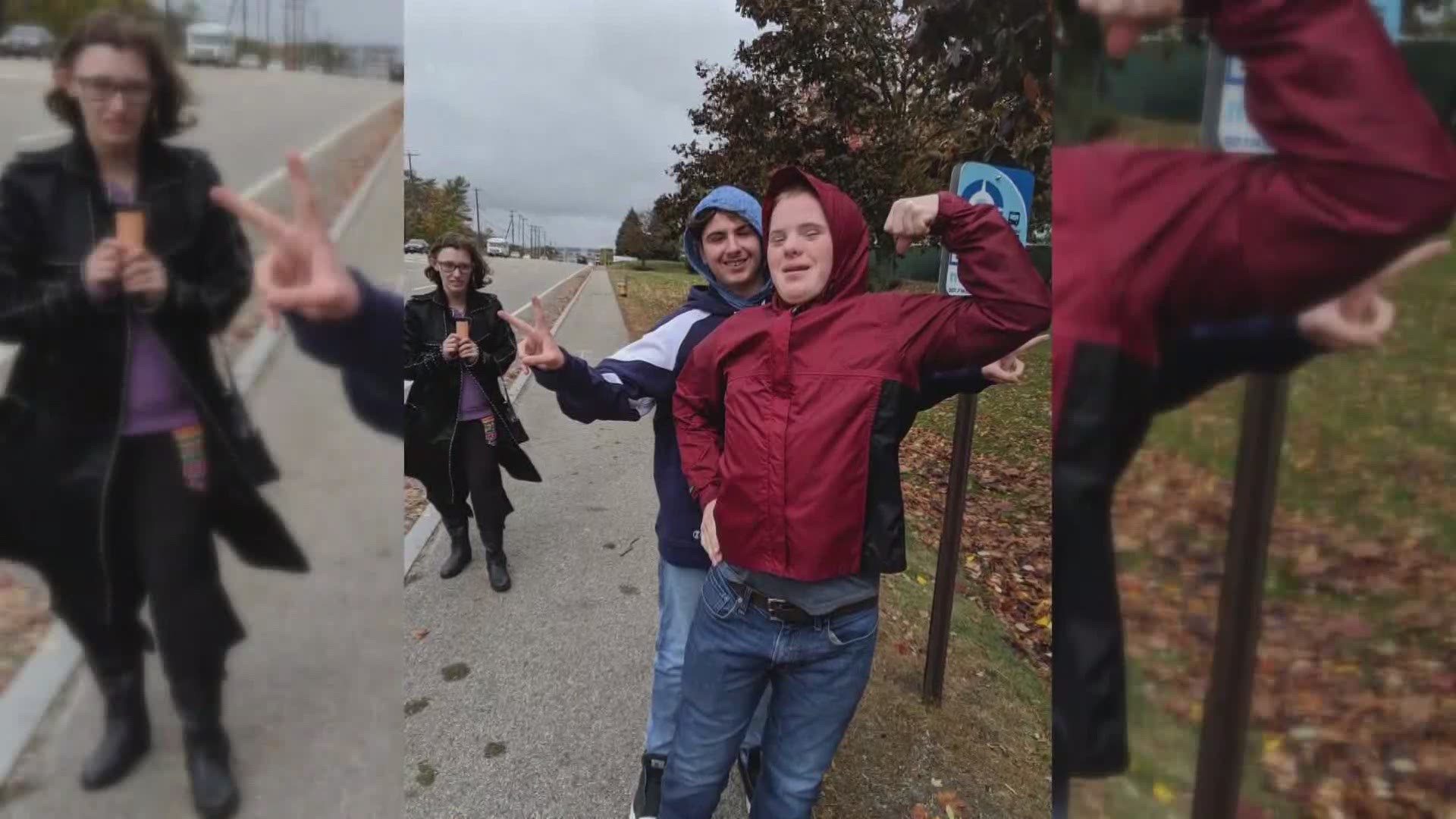Editor’s note: You are starting to hear the term ‘flattening the curve’ as a way to stem the tide of coronavirus cases. The above video explains what that means.
In the wake of COVID-19, remote learning became a necessity for school districts in Maine.
There are understandably a lot of obstacles with distant learning, but the challenges can be even more daunting for students in special education.
STRIVE--- a non-profit organization that provides social and educational programs for young people with intellectual disabilities--- is doing what they can to help.
One of STRIVE's programs, called TOPS, is designed for young students who are transitioning out of high school into the adult world.
The program, in collaboration with area school districts, is usually held at STRIVE's South Portland location. But when schools were forced to turn to remote learning-- so did STRIVE and they invited other students with special needs to participate as well.
Before COVID-19, students enrolled in STRIVE's TOPS program spent a lot of time in the community.
"TOPS is a program where we learn to be independent, go to the grocery store, or like take a taxi or an Uber," Charlie Saffian of South Portland said.
Like Charlie, students who are about to graduate high school are learning to live more independently.
But as schools in Maine were forced to close classrooms, TOPS went online, too. But not just for the students who were about to graduate but for any high school student with special needs.
Instructors Kelley Frey and Sara Brown teach two classes a day, from self-awareness and self-advocacy to boundaries and personal safety. Many of the classes are interactive.
"We had a scavenger hunt last week we had a cooking group we did and played a game called Druffle," Frey said.
Sara Brown is an instructor for WorldWIDE, a first-of-its-kind online program at STRIVE that launched last year, It also teaches independent living skills to individuals with intellectual and developmental disabilities.
"We've taken the WorldWide curriculum and tweaked it a little bit so that it can be usable in this format."
Brown says it been working really well.
"In this format, we can ask a question and everyone can answer at the same time so it's kind of neat to be able to gauge who is grasping the material," Brown said.
Abrupt change is hard for anyone but these students are embracing this new experiencing.
Sydney Pitts of Cumberland said, " I like to stay home and play with my dog Bentley."
And Charlie Saffian added, "I think it's really fun to do this class because you get to learn new things and we get to meet new friends."
Julie Olsen is the director of Special Education for MSAD 51.
"Our students really thrive when there is structure and predictability and familiar faces," Olsen said.
She says STRIVE is not only providing consistency and normalcy during an unpredictable time, it's making sure these students don't lose much ground.
"These are students who are 19 and 20 years old entering adulthood and adult programs and services and we want to give them as much of a leg up as we can."
And while this new way of teaching may not be traditional Kelly Frey says students are thriving.
"Having a social-emotional component to our classes has really been a game-changer we have seen students really excel."
She went on to say there is a student who typically does not speak when they are are in class but in this format, she is very chatty and we've seen extreme growth just with the abortion of materials we're presenting and communication to teachers and peers.
Right now there are 18 students from 9 school districts in TOPS. Schools or parents interested in taking advantage of the virtual program or other programs can reach out to STRIVE.
At NEWS CENTER Maine, we're focusing our news coverage on the facts and not the fear around the illness. To see our full coverage, visit our coronavirus section, here: /coronavirus

